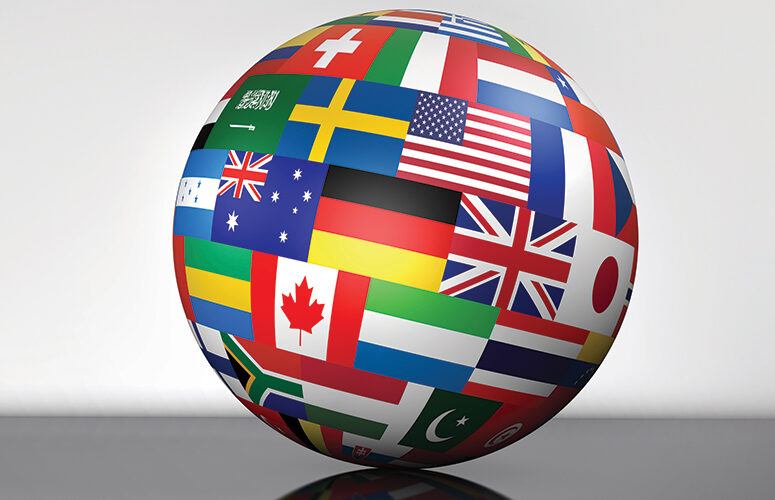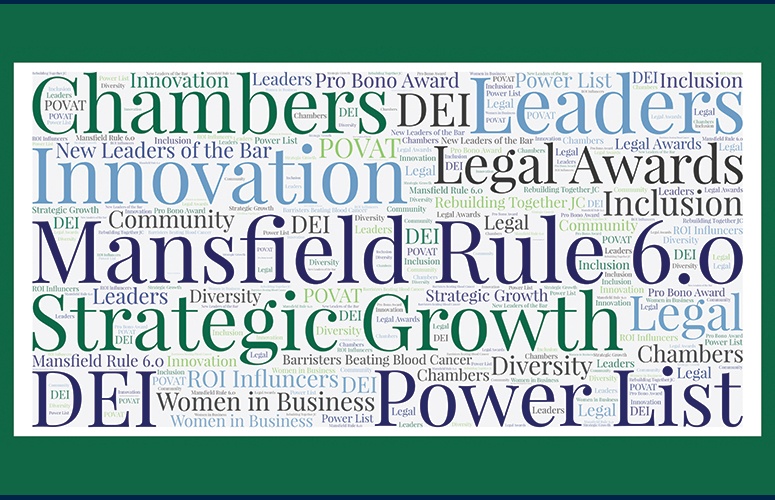
Hiring from a Global Labor Pool
For New Jersey companies legally hiring both highly skilled foreign nationals and others who are not US citizens or permanent residents, the process can be complex.
By George N. Saliba, Contributing Writer On Nov 2, 2021When companies and institutions in New Jersey are unable to find highly skilled US workers, they can hire exceptionally skilled and specialized nonimmigrant workers from a global labor pool via US Citizenship and Immigration Services classifications such as the H-1B visa. Attorneys are helping with this complex process.
Temporary Workers
Employer-sponsored H-1Bs require baccalaureate or advanced degrees aligned with “specialty occupations” here in the United States, such as IT professionals, healthcare workers, engineers and accountants. While H-1Bs are capped at 85,000 annually for the entire country, there can be workarounds, sometimes for hospitals that can prove affiliation with an academic institution, incubators at academic institutions, non-profit organizations conducting applied research, and for companies involved with Department of Defense consulting. It’s all part of a broader palette that separately includes O-1A classification for individuals who are extraordinary in the sciences, business, education or athletics; and O-1B classification for highly talented artists or for those with special achievement in the film or television industry. The E-2 Treaty Investors classification is yet another option that allows those from select countries to, in effect, invest in a US company, and then offer their services as an independent contractor.
“Companies here in New Jersey are opening up their eyes to what they didn’t realize before: That there are other alternatives to getting [highly skilled foreign workers] aboard besides the H-1B,” David Nachman, managing attorney at Nachman Phulwani Zimovcak (NPZ) Law Group, P.C. (VISASERVE), tells New Jersey Business. “For many, many years, everyone was laboring under the delusion that H-1B was the only way to get solid talent.”
Resources
The US Citizenship and Immigration Services and the US Department of Labor’s websites remain invaluable resources for businesses in need of guidance, but Nachman and other attorneys caution that there is no substitute for competent legal advice. In the H-1B realm, for example, work permits are sensitive to geographic location, wage determinations, worker skills, the skills the company requires, as well as the arguably delicate act of simultaneously representing both the foreign national worker and the hiring employer (their best interests may conflict on certain matters). Of note, H-1B workers cannot be paid less than the federally mandated prevailing wage.
“When I first started doing H-1Bs in the late 1980s and early 1990s, I would have said to a client, ‘Well, you can probably tackle this.’ Now, it is not for the faint of heart. The complexity of the H-1B has mushroomed over the years,” Nachman says.
Harlan York, an attorney in Newark who heads the immigration firm Harlan York and Associates, says, overall, “The smart move would be to get a firm that exclusively practices in immigration law and is well versed in employment-based immigration and consult with them so they can understand the nuances of the work, various challenges, and just how the whole process works, in general.”
The Pandemic
The coronavirus pandemic has added additional challenges to hiring aliens via various travel restrictions for China, Iran, Schengen Europe (an area comprising 26 European countries that have officially abolished all passport and all other types of border control at their mutual borders), Ireland, UK, Brazil, South India and Africa. In brief, attorneys say they must seek National Interest Exceptions (NIEs) for these travel bans, for individuals who are not already inside the United States.
Kathleen M. Peregoy, co-chair, corporate immigration and global mobility practice group at the law firm of Connell Foley, says, “From March 2020 to July 2020, all US Consulates were closed due to COVID-19. They have slowly reopened, but anecdotally, they are only operating at about 25% capacity in many cases. The consulates that are open have restricted services to emergent applications and have imposed a strict hierarchy of classifications that have priority for service.”
She adds, “We have been successfully processing visas and obtaining NIEs for business travelers since last year, but the process is complicated, and demanding, in that it differs for each country, and requires significant showing that the traveler is entering the US to provide vital support to critical US infrastructure.”
Trump and Biden Administrations
Meanwhile, regarding overall changes in employment-based immigration laws between the Trump and Biden administrations, Peregoy says, “The prior administration’s decisions seemed to focus on curtailing immigration, reshaping the US system through executive action, policy guidance, and regulatory change. It would have been much more difficult to obtain H-1B for IT workers. New prevailing wage requirements would have effectively eliminated H-1Bs for entry level workers. Additionally, the H-4 spousal employment authorization document (EAD) would likely have been eliminated. Hundreds of policies would have reduced legal and illegal immigration to the US. Under the new administration, these more highly restrictive provisions have been rolled back so that the system has returned to where it was at the end of the Obama administration. There is a limited ability to hire given caps and quotas.”
I-9 Compliance
Skilled foreign workers aside, companies hiring workers in general are advised to beware of I-9 compliance, which verifies employees’ identities and employment authorizations. On the one hand, attorneys say firms must be cautious not to discriminate or ask inappropriate questions when hiring and onboarding employees, but they also do need to comply with I-9s because even small companies receive visits from U.S. Immigration and Customs Enforcement (ICE) officials. York explains, “You’re not supposed to be discriminatory within your hiring practices, so you have to – within the first three calendar days – get an I-9 compliance done and keep those I-9 employment eligibility verification forms on file. Of course, this is not only in the case of immigrants: All businesses, big, small or medium, have to do I-9s, and keep those I-9s on file.”
Conclusion
As NJ companies continue hiring foreign and other workers to foster their business growth, attorneys stand ready to assist them. Nachman says, “I don’t see myself as an immigration lawyer. I see myself as an individual who is taking advantage of the worldwide brain drain and trying to get the best and brightest here as quickly as possible, so that they don’t end up going to other countries where they are going to add value.”
To access more business news, visit NJB News Now.






